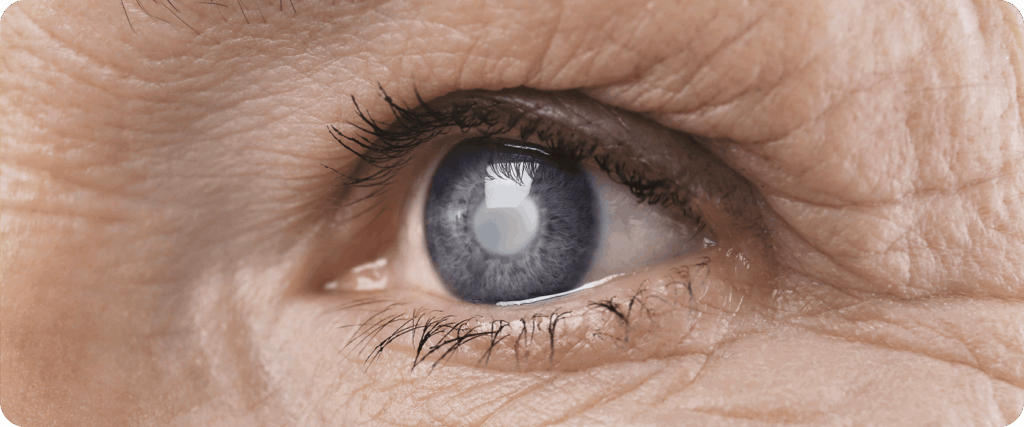
How to Protect Senior Eye Health
August is Senior Eye Health Month, a time dedicated to raising awareness about the importance of eye care for older adults. This annual observance reminds us that maintaining good vision is crucial for staying independent, safe, and connected to the world around us. Our eyes face new challenges over time, but with the right knowledge and proactive care, we can protect our sight and continue enjoying life to the fullest.
Good vision affects nearly every aspect of daily life. It helps us read medication labels correctly, navigate stairs safely, drive confidently, and stay connected with loved ones. When eye health declines, it can impact our independence and quality of life. That’s why understanding senior eye health tips and taking action early makes such a difference.
Understanding Eye Problems in Seniors
Our eyes naturally change over time, and certain conditions become more common in later years. Knowing what to watch for helps catch problems early when treatment is most effective.
The most common eye problems in seniors include:
- Age-related macular degeneration affects the center of vision, making it harder to see fine details for reading or recognizing faces
- Cataracts cause the lens to become cloudy, leading to blurred vision and increased sensitivity to light
- Glaucoma damages the optic nerve and can lead to vision loss if not treated
- Diabetic retinopathy affects people with diabetes and can cause serious vision problems if blood sugar isn’t well controlled
The encouraging news is that many of these conditions can be prevented, slowed down, or successfully treated when caught early. Regular eye exams become increasingly important because many eye conditions develop gradually without obvious symptoms at first.
The Foundation of Healthy Vision

Protecting your eyesight begins with understanding that eye health is connected to your overall health. Your eyes, just like the rest of your body, benefit from good nutrition, regular exercise, and healthy lifestyle choices.
Regular eye exams are your first line of defense. Adults over 60 should have dilated eye exams at least once a year, or more often if recommended by their eye care professional. These exams can detect problems before you notice any changes in your vision.
Managing chronic health conditions like diabetes and high blood pressure is equally important since these conditions can affect your eye health. Maintaining healthy blood sugar and blood pressure levels helps protect the delicate blood vessels in your eyes.
Nutrition for Healthy Eyes
What you eat plays a significant role in maintaining good eye health. Certain nutrients have been shown to support eye function and may help prevent age-related eye problems. Foods for eye health should be a regular part of your daily meals.
Dark leafy greens like spinach, kale, and collard greens contain lutein and zeaxanthin, antioxidants that help protect the retina. These nutrients act like natural sunglasses for your eyes, filtering harmful blue light. Fish rich in omega-3 fatty acids, such as salmon, tuna, and sardines, support overall eye health and may help prevent dry eyes.
Colorful fruits and vegetables are rich in essential vitamins and antioxidants. Orange and yellow foods like carrots, sweet potatoes, and bell peppers contain beta-carotene, which your body converts to vitamin A. Berries, citrus fruits, and other vitamin C-rich foods help maintain healthy blood vessels in your eyes.
Key nutrients that support eye health include:
- Vitamin A (supports night vision and overall eye function)
- Vitamin C (protects against oxidative damage)
- Vitamin E (works with other antioxidants to protect eye cells)
- Omega-3 fatty acids (support retinal health and reduce dry eyes)
- Lutein and zeaxanthin (filter harmful blue light)
- Zinc (helps vitamin A work effectively)
Vitamins and Supplements for Eye Health

While getting nutrients from food is always best, vitamins for eye health can be helpful when your diet lacks enough of these important nutrients. However, it’s important to talk with your doctor before starting any new supplements.
Some eye care professionals recommend specific vitamin formulations based on research studies. The Age-Related Eye Disease Study (AREDS) found that certain combinations of vitamins and minerals may help slow the progression of macular degeneration in some people. These formulations typically include vitamins C and E, beta-carotene or lutein, zinc, and copper.
If you’re considering eye health supplements, discuss your individual needs with your eye care provider. They can help determine if supplements are right for you based on your current eye health, diet, and any medications you’re taking.
Protecting Your Eyes from Environmental Factors
Your daily habits and environment play important roles in maintaining eye health. Simple protective measures can make a big difference over time.
Wearing sunglasses that block 100% of UV rays helps protect against sun damage. Look for sunglasses labeled as blocking both UVA and UVB rays. A wide-brimmed hat provides additional protection, especially during peak sun hours.
Good lighting reduces eye strain and makes daily tasks easier and safer. Use adequate lighting when reading, cooking, or doing detailed work. Position light sources to avoid glare on computer screens or reading materials. Consider using task lighting for activities that require focused vision.
Taking regular breaks from screens helps prevent digital eye strain. Follow the 20-20-20 rule: every 20 minutes, look at something 20 feet away for at least 20 seconds. This simple practice helps relax the focusing muscles in your eyes.
Creating Your Eye Health Action Plan

Taking care of your eyes doesn’t have to be complicated. Start with these practical steps:
- Schedule regular comprehensive eye exams
- Eat a balanced diet rich in eye-healthy nutrients
- Protect your eyes from UV rays with proper sunglasses
- Manage chronic health conditions effectively
- Practice good screen habits and take regular breaks
Pay attention to changes in your vision and don’t ignore warning signs. Contact your eye care provider if you notice sudden vision changes, flashing lights, new floaters, eye pain, or any other concerning symptoms.
Building an eye care team that includes your primary care doctor and eye care professionals ensures comprehensive care. They can work together to monitor your overall health and how it affects your vision.
Looking Forward with Confidence
Senior Eye Health Month serves as an important reminder that taking care of our eyes is an investment in our future independence and quality of life. With the right combination of regular professional care, good nutrition, protective habits, and awareness of potential problems, we can maintain healthy vision.
Remember that many age-related eye changes are treatable, especially when caught early. By staying proactive about eye health and following these practical tips, you’re taking important steps to preserve one of your most precious senses. Your eyes have served you well, and with proper care, they can continue to help you see and enjoy the world’s beauty.
You Might Also Like

Tech Alone Doesn’t Keep Seniors Safe – People Do
